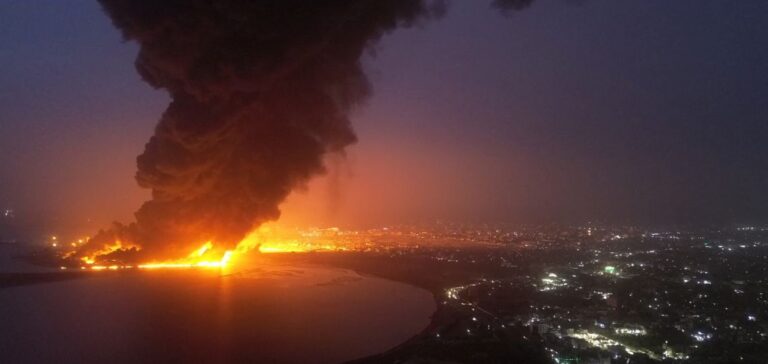The recent Israeli strikes on the Hodeidah oil import terminal triggered a fire that has been raging since July 21. This attack follows a drone offensive by theIranian-backed Houthis on Tel Aviv on July 19. Israeli bombardments targeted oil storage facilities and natural gas export infrastructure in Hodeidah, a key port on Yemen’s Red Sea coast. In May 2024, a tanker had already been damaged by missiles from Yemen.
The Almasirah Media Network reported that the fire could take several days to bring under control, according to port authorities quoted by German news service DW. The Houthis have promised a “significant and important response” and declared on July 21 that they had carried out a targeted military operation on the Israeli port of Eilat. Israeli military forces intercepted a rocket over Eilat.
Regional implications
These attacks are increasing the risks to the flow of goods in the region as hostilities threaten to spread. The Houthis also claimed responsibility for a missile and drone attack on the Liberian-flagged container ship MV Pumba, which was transiting the Bab el-Mandeb Strait, with its final destination the Malaysian port of Klang.
Saudi Arabia denied any involvement in the attack on Hodeidah, 1,800 km from Israel, and said it would not allow any entity to violate its airspace. The United States, which leads a maritime coalition to defend shipping in the Red Sea against Houthi attacks, also said it was not involved in the air strike.
Impact on Imports and Safety
Since 2018, the port of Fujairah in the United Arab Emirates has been the main supplier of refined products to Hodeidah, averaging 7,600 barrels a day in June, mainly diesel. This is down from the peak of 68,600 barrels per day in 2022. Other suppliers include Saudi Arabia, Russia and India, with products such as gasoline and naphtha.
The port of Hodeidah also plays a crucial role for humanitarian aid imports. However, Israeli authorities have accused the port of being an entry point for Iranian weapons destined for the Houthis. Houthi forces, which have controlled the capital Sanaa and most of northern Yemen since 2014, use the areas around Hodeidah to launch missiles against commercial vessels in the Red Sea and Gulf of Aden.
The recent US sanctions, imposed on July 18, target individuals and companies involved in the Iranian oil trade, accused of financing Houthi naval attacks. These measures reflect the growing complexity of the geopolitical situation in the region.
Recent tensions and attacks around the port of Hodeidah highlight the fragility of maritime trade routes in the region and the complexity of power dynamics in the Middle East. Developments in this situation could have significant repercussions on world trade and energy security.






















